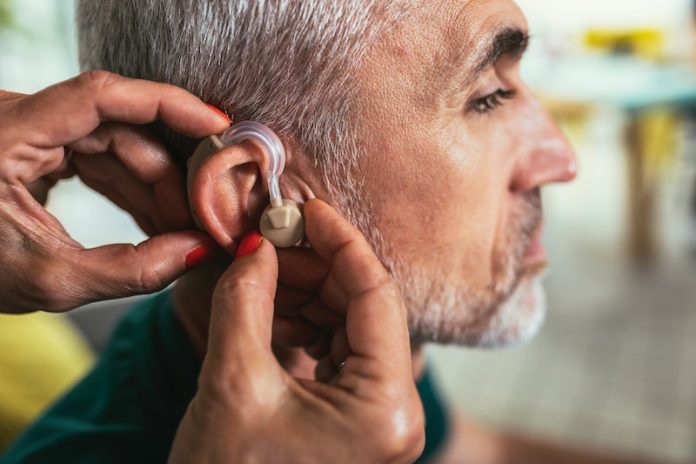
As we age, many of us may start to notice a decline in our hearing abilities. By some estimates, at least half of all individuals over the age of 75 experience this problem.
While congenital hearing loss, typically appears in childhood, and results from rare mutations, hearing difficulties in adults are thought to result from a combination of genetic and environmental factors.
Limited Understanding
Prior genome-wide association studies have discovered several risk genes associated with adult hearing problems, yet there are still gaps in our understanding.
For instance, why is it that hearing problems tend to be more common, more severe, and start earlier in men than in women?
There is also uncertainty about how genetic risk factors interact with people’s diverse ancestral backgrounds.
Expanding Our Understanding: A Collaborative Study
A collaborative study between researchers at Yale, Harvard University, and the University of California San Diego has shed light on these questions, broadening our comprehension of an individual’s predisposition to age-related hearing problems.
In this large-scale study, researchers examined nearly 750,000 adults and identified 54 risk variants, including 12 previously unknown variants, that could contribute to hearing problems.
Significantly, they also observed how hormonal regulation might influence gender differences in hearing problems.
Findings Across Ancestral Groups
By analyzing data from multiple ancestry groups, the researchers demonstrated that genetic risk for hearing problems is shared across human populations.
They also determined that genes involved in brain development interact with sex, noise pollution, and tobacco smoking in relation to their associations with hearing problems.
Implications of the Study
Associate Professor of Psychiatry at Yale School of Medicine and senior author of the study, Renato Polimanti, Ph.D., highlighted the significance of large-scale genetic studies in improving our understanding of the biology and epidemiology of hearing problems in adults.
This study, published in Genome Medicine, contributes to the identification of possible molecular targets for drug development and offers novel strategies to identify older adults at risk of hearing loss.
Future Impact
The results of this research could lead to changes in how older adults with hearing loss are assessed and treated.
Hearing loss can greatly affect a person’s quality of life, leading to impaired communication and resulting in social isolation, with significant health, psychosocial, and economic consequences.
This groundbreaking study takes a significant stride in our understanding of age-related hearing loss, pointing towards more targeted interventions in the future.
If you care about health, please read studies about hearing loss linked to higher dementia risk, and can hearing loss be reversed? Scientists believe it’s possible.
For more information on health, please see recent studies about Vitamin D deficiency linked to higher dementia risk, and these antioxidants could help reduce dementia risk.
The study was published in Genome Medicine.
Copyright © 2023 Knowridge Science Report. All rights reserved.



